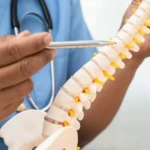Introduction to Mindfulness
Mindfulness is the practice of being fully present in the moment, aware of your thoughts, feelings, and surroundings without judgment. Practicing mindfulness improves mental health, reduces stress, and enhances overall well-being.
In 2025, mindfulness has become a key tool for managing anxiety, boosting focus, and improving emotional resilience. Regular practice promotes calmness, clarity, and better decision-making in daily life.
Focused Breathing
Focused or deep breathing is a simple mindfulness technique that calms the nervous system.
Take slow, deep breaths while concentrating on inhalation and exhalation. Practicing for 5–10 minutes daily reduces stress, lowers heart rate, and improves mental clarity.
Body Scan Meditation
Body scan involves paying attention to sensations in different parts of your body, from head to toe.
This technique helps identify tension, release stress, and improve awareness of physical and emotional states. A few minutes daily can enhance relaxation and mental balance.
Mindful Walking
Mindful walking is paying full attention to each step, movement, and surroundings while walking.
Focus on your breath, posture, and environment. This practice combines physical activity with mindfulness, reducing stress and improving mental focus.
Guided Meditation
Guided meditation uses audio or video instructions to lead you through relaxation and mindfulness exercises.
Beginners can benefit from apps or online resources. Guided sessions help maintain focus and teach mindfulness techniques effectively.
Mindful Eating
Mindful eating involves paying full attention to the taste, texture, and aroma of food while eating slowly.
This practice improves digestion, reduces overeating, and promotes a healthier relationship with food. It also encourages awareness and presence in everyday activities.
Journaling for Mindfulness
Writing down thoughts, feelings, and experiences fosters self-awareness and emotional processing.
Daily mindfulness journaling helps recognize patterns, reduce stress, and promote mental clarity. Reflective writing is a simple yet powerful mindfulness tool.
Gratitude Practice
Expressing gratitude enhances mental well-being and mindfulness.
Take a few minutes each day to note things you are thankful for. Gratitude shifts focus from negative thoughts to positive experiences, improving overall mental health.
Conclusion: Mindfulness for Better Mental Health
Incorporating mindfulness techniques—focused breathing, body scan, mindful walking, meditation, mindful eating, journaling, and gratitude—supports mental health and emotional resilience.
Regular practice reduces stress, enhances focus, and improves overall well-being. By adopting mindfulness daily, anyone can achieve greater clarity, calmness, and a balanced mental state.
FAQs About Mindfulness Techniques
What is mindfulness?
Being fully present and aware of your thoughts, feelings, and surroundings.
How does mindfulness reduce stress?
It calms the mind, improves focus, and encourages relaxation.
What is focused breathing?
Deep, slow breaths while concentrating on inhalation and exhalation.
How does mindful walking help?
Combines movement with presence, reducing stress and improving focus.
Can beginners practice guided meditation?
Yes, apps and online resources make it easy to follow instructions.
What is mindful eating?
Eating slowly while paying full attention to taste, texture, and aroma.
How does journaling improve mindfulness?
Writing thoughts fosters self-awareness and emotional clarity.
What is a gratitude practice?
Daily acknowledgment of things you are thankful for to boost positivity.
How long should mindfulness practice last?
Even 5–15 minutes daily provides mental health benefits.
Can mindfulness improve overall well-being?
Yes, regular practice enhances focus, calmness, and emotional resilience.







